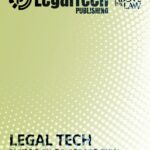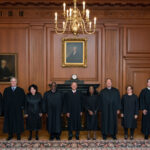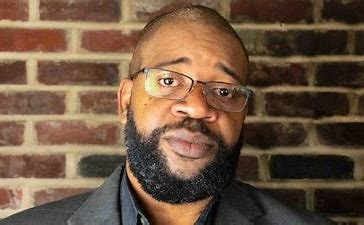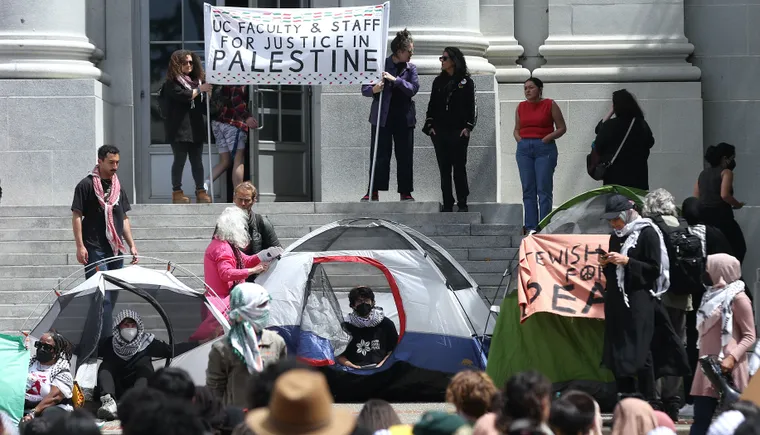Lies strike like lightning in our current political disinformation age. The targets of these “disinfo” strikes can often seem random, but they flash with the brilliance of a lightning storm at dawn. Given the limits of American media, no truth-telling can keep pace or correct the record – even when the stakes are impossible to quantify.
Scholars and pundits alike have tried to wrestle with these phenomena amidst our current post-truth malaise. University of Michigan Law Professor, Barbara McQuade aptly details this moment as an “attack from within.” In On Disinformation, Lee McIntyre argues that we are wallowing in the consequences of at least 70 years of “strategic denialism.” But in an era where lies and half-truths spread with the same velocity as lightning, the recent controversy surrounding Haitian migrants in Springfield, Ohio, serves as the latest case study on the catastrophic dangers of disinformation. Dr. James B. Peterson
Dr. James B. Peterson
The urgent need for empathy centered on the citizens of Springfield, Ohio comes with a requisite requirement. Springfield is an existential emblem of our nation’s predicament in a presidential cycle where all things immigration are punted like a political football from one endzone to another – one town to another – replete with a discourse that often borders on the absurd. We are all somehow citizens of Springfield, USA. The town’s name, Springfield, carries a historical and symbolic weight that reverberates across the landscape of American political and social discourse. Understanding this symbolism provides a peak into the aperture through which we can better appreciate the implications of the recent disinformation campaign and reflect on our collective condition.
Although misinformation is a critical part of the debunked story that continues to accrue headlines, there is a crucial distinction between the ‘mis’ and the ‘dis’ when it comes to how we currently encounter information. Misinformation is incorrect or misleading information shared without harmful intent. The people who shared the story; those who laughed at the memes or reposted the original Facebook content. Many of these people may have been misinformed.
Disinformation is deliberately falsified information meant to deceive. The deliberate and/or calculated circulation of the false narrative about Haitian migrants in Springfield, Ohio, even after it has been repeatedly debunked is a maximum example of disinformation. It is crafted to exploit fears and sow the seeds of discord and anti-Black, anti-immigrant hatred. Senator Vance’s recent admission that he is willing to tell lies like this in order to feed the attention economy of a political campaign is an ugly low point in a bottomless reservoir of bad-faith political discourse. We all live in Springfield. And this recent episode of political disinformation exposes the pernicious impact of deliberate falsehoods, underscoring the imperative for all of us to critically evaluate the information we encounter – every day.
The name “Springfield” is emblematic of a kind of every town—a name that conjures cartoonish images of an idealized, quintessential American community. The name Springfield is derived from Old English, meaning “spring field,” referencing a meadow or field near a spring. It summons a sense of pastoral tranquility and simplicity, a stark contrast to the chaotic whirlwind of disinformation that currently plagues Springfield, Ohio. We are entering into the second week of this disinformed story and several days into a persistent cacophony of terroristic threats directed at the students, citizens, and civic infrastructure of this small town in middle America. We all live in Springfield.
Springfield is not unique to Ohio; in fact, there are over 30 cities and towns across the United States sharing this name. From Springfield, Massachusetts to Springfield, Illinois, to Springfield, Pennsylvania, the name has been adopted by communities across the country, each municipality with its own unique history and identity. This ubiquity makes Springfield a metaphor for any American town, and this moment is a reflection of the universal nature of the challenges we face in the digital disinformation age.
The fictional Springfield in Matt Groening’s iconic show “The Simpsons” provides another prism through which the symbolism of this town’s name might be realized. While the show’s Springfield is set in an ambiguous location, it is widely recognized that Groening chose the name to reflect the ‘everytown’ quality of the place, making it a stand-in for any and all American communities. In the Simpsons’ Springfield, we see exaggerated versions of real-life issues and a satirical reflection of American society. We uncover eerie predictions that only became prophecy when we look back into the show’s exhaustive catalog. The Simpsons’ Springfield is supposed to be a symbol of the mundane and the extraordinary, the trivial and the significant, blended in a way that mirrors the contradictions of our real lives. The Simpsons is this and more, but it is one more indication of the fact that we all live in Springfield.
The Springfield of our political reality is a town square where truth and falsehood are often indistinguishable, and where the real and the fictional can blend in troubling ways. The name Springfield, with its origins in pastoral imagery, stands in stark contrast to the harsh realities of the political disinformation that continues to dog us. It reminds us that despite this municipal name’s association with idealized simplicity, our real-life Springfield is a critical battleground for truth and trust.
Our charge is to tackle the turbulent waters of the current disinformation age, even when the topsy-turvy nature of it all infuriates and frustrates us. The name Springfield serves as a powerful reminder of both our shared experience and our collective responsibility. It challenges us to confront the realities of deception and to strive for a clear-eyed consumption of truth in and about our communities. If Springfield represents some fleeting universal aspect of American life, then what we do (or don’t do) to disempower the political disinformation age will become the record of history in a future where democracy may no longer be a place that we can call home.
Dr. James B. Peterson is founder of Hip Hop Scholars, an organization devoted to developing the educational potential of Hip Hop. He is the author of Hip Hop Headphones: A Scholar’s Critical Playlist.
#Springfield #USA #Diverse #Issues #Higher #Education










